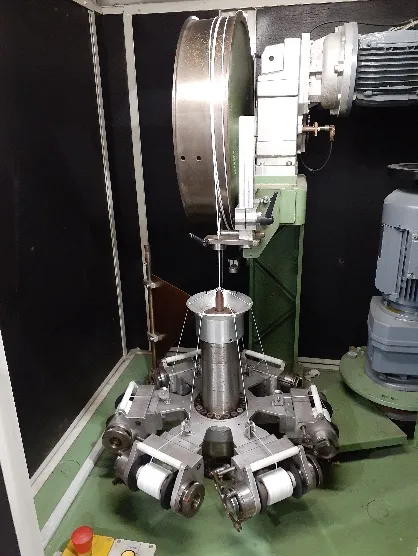
Insulated Winding Wire 101: Selecting an Insulated Winding Wire Part I: Temperature Ratings
Back to BlogWhen designing or selecting an insulated winding wire for use in a wound component, it is important to consider the following:
- What is the range of operating temperatures that the product will see in your application?
- What temperatures will the wire be subjected to in downstream manufacturing processes?
- What is the expected/required thermal life for the end-product?
- What voltage rating is required for this application (including transient overvoltages)?
- What are the regulatory and testing requirements that I should be concerned with?
- Is basic, supplementary, or reinforced insulation required for this application?
- Is there a UL recognized insulation system out there with both this wire and the bobbins, core tubes, tapes, varnishes, etc. that I would like to use with it?
This article will focus on the first three questions. The other considerations are still valid and should be taken into account when making a selection but will be addressed in a future article.
- Operating temperature range: The insulation materials selected should have a temperature rating that is greater than or equal to the maximum operating temperature. Higher temperatures will accelerate aging and shorten the product’s lifespan.
- Melting Temperature: Thermoplastic materials soften and can be made to flow again at elevated temperatures, so it is important to avoid temperatures near the melting point of thermoplastic materials when working with them. In the case of reflow solder applications, processing temperatures with RoHS compliant solders are typically too hot for Class B and Class F insulation materials. Instead, PFA is recommended for use in those applications, as it holds up better in processing.
- Expected Thermal Life: Insulated winding wires are rated for a minimum expected thermal life of 20,000 hours at their rated temperatures. If the desired or required operating life for your product is greater than 20,000 hours, then an insulated winding wire with a higher temperature rating may be something to consider when designing the wound components.
For an application where the required an operating life of the product is 5,000 hours or less, it may be possible to use an insulated winding wire with a temperature rating that is up to 20°C less than the maximum operating temperature. This observation is based on one of the required data points in the accelerated aging test program used to establish the thermal index of an Electrical Insulation System in UL Standard 1446 and may not be applicable for all applications. Relevant Codes, Standards, and Authorities Having Jurisdiction (AHJ’s) should be consulted to confirm acceptability.
Below are some tables comparing several common insulation materials used on Class B, Class F, and Class H insulated winding wires.
Table 1: Extruded Insulation Materials
| ETFE (Ethylene Tetrafluoroethylene) | FEP (Fluorinated Polyethylene) | PFA (Perfluoroalkoxy) | |
| Common Trade Name | Tefzel™ | Teflon™ | Teflon™ |
| Temperature Class | F | F | H |
| Maximum Operating Temperature | 155°C | 155°C | 180°C |
| Melting Point | 220-280°C | 255-260°C | Approx. 305°C |
Table 2: Taped Insulation Materials
| PET (Polyethylene Teraphthalate) | PPS (Polyphenylene Sulfide) | PEN (Polyethylene Naphthalate) | PI (Polyimide) | |
| Common Trade Name | Mylar | N/A | N/A | Kapton® |
| Temperature Class | N/A* | F | H | H |
| Maximum Operating Temperature | N/A* | 155°C | 180°C | 180°C |
| Melting Point | 200 – 260°C | Approx. 280°C | Approx. 270°C | N/A (Decomposes at 520°C) |
| Notes | * Typically used under other tape layers | Typically FEP-backed |
Need further assistance with determining what insulation materials might be appropriate for your application? Contact our knowledgeable sales and engineering teams to discuss your application at sales@rubadue.com or +1(970) 351-6100.
For other considerations when selecting an insulation material, see Part II (coming November 2021) or reach out to our knowledgeable sales and engineering teams for assistance.
Tefzel™ and Teflon™ are trademarks of Chemours.
Kapton® is a trademark of DuPont Electronics, Inc.
You May Like

Litz Wire 101: When is a textile serve appropriate for your application?
Textile serves, when applied to Litz wires, act as an optional layer of added mechanical protection for the overall conductor. Serves are particularly effective at protecting the enamel layer on the individual strands of the
Company Alert: Monday, Jan. 22, 2024
The Telephone & Internet service at the Rubadue Wire manufacturing facility in Loveland, Colorado has been disrupted, due to local weather conditions. Please utilize email for all communications until further notice. For Sales & General